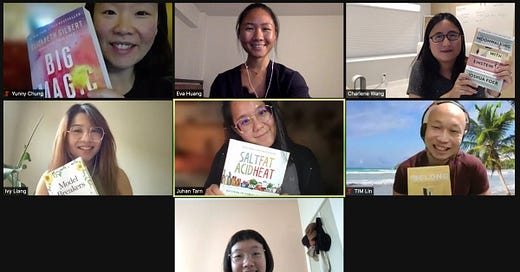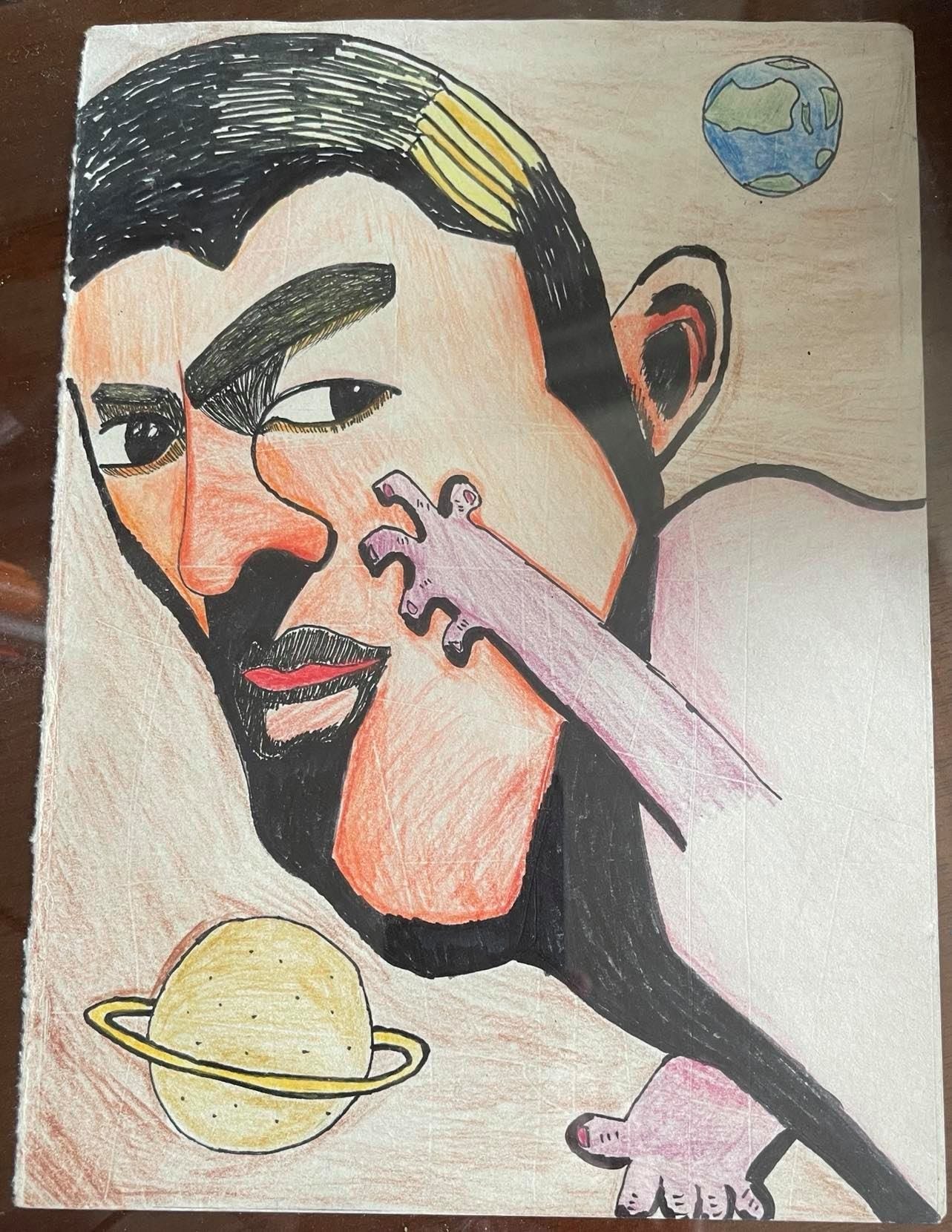I am a writer.
“Don't rush through the experiences that have the most capacity to transform you.” — Pastor Rob Bell


If you’re ready to up-level your life’s operating system with a passionate group of high achievers, apply for the last 2021 cohort of The LivingOS Fellowship. We’re at T-minus 6 days until early-bird pricing ends on Thursday, September 16th.
“Don't rush through the experiences that have the most capacity to transform you.” — Pastor Rob Bell
Growing up, I loved to use watercolor, pencil, crayons, charcoal, and ink to bring my ideas to life.
“You are so talented!” my dad marveled at the painting I slid under his desk over a typical school night. My dad admired everything I created, including projects I would rather hide in my drawer. He gave me the validation I didn't know I needed.
I used to draw for the fun of it, and the artwork was pure and creative.
Then I learned about my elementary school’s quarterly drawing competition, which allowed me to draw a whole day away in an air conditioner (AC) room at school. The summer in Taipei was so hot that even taking one day off of school would give me enough incentive to brush up on my drawing skills for a whole semester.
My craving for more AC days prompted me to explore writing, researching, typing, and calligraphy. I was good enough to qualify and compete in them all. Then my competitive side made me want more. In addition to getting those AC days, I also wanted to win.
The champion of each grade got to represent the school to compete at the municipal, city, and national levels. To maximize the chance of winning, each student had to pick their best talent and get trained to nail it completely.
My category was writing. I read many “best essays” from recent years, and their eloquence made my jaw drop. To make up for the skill gap, I began to write, revise, and memorize two canonical stories for each of a dozen genres. I won the municipal round. I began to memorize classics and quotes that were not meant for grade-schoolers. I won the city round. I began to write an essay every day to prepare for the final competition at the national level.
In one hundred days, I created an idea bank of stories, transitions, and quotes, so that I could master any prompt. Throughout the process, I fell in love with writing. I loved to turn everyday conversations into engaging stories. I loved to set my favorite characters up for adventure, abyss, and comeback. I loved to connect the dots, follow my imagination, and express ideas that I was desperate—yet too timid—to share. I loved the craft so much that I wanted to make sure it loved me back.
I wanted the grand prize to validate that I was good enough for this craft. The obsession with winning—unfortunately—stopped me from enjoying creativity. What if the judge couldn’t appreciate my creativity? What if I messed up the idea bank that was proven to do me service? I was frozen with fear, and my writing process became so rigid that even the last bit of fun was gone.
The pressure did not serve me well, as it turned out. I lost the national round, as well as my passion for the craft. When I wrote to win, all I cared about was tactics and form.1 I forgot how to write without structure.2 I forgot how to create.
A decade later, I learned to write in a new language through a creative nonfiction class at Brown University. I almost failed that class—mainly because I forgot how to be creative. When the professor asked us to pick an ordinary object, stare at it for thirty minutes, and write something, all I could write was a dull Starbucks description (Here’s a coffee cup sitting next to me…) When the professor asked us to write about a local food truck, all I did was piece the Google reviews together. Despite many futile attempts, the professor did not give up on me. He wanted to understand why I chose each word or sentence structure even though my only answer was “why not?” He spent an extra hour teaching me every week and introduced me to a fabulous teacher at the writing center. Even though I barely passed the creative nonfiction class, his conviction made me revisit the writing craft.
I recommitted myself to the craft of writing and began to write lengthy journals. After a few weeks of freewriting, I began to notice that when I let my mind flow, my pen moved on its own. When I trusted the journaling process, words just flew through me—before I could connect the dots. I began to converse with myself through journaling over the lonely nights. When I struggled to find love or friends, I began to find solace through the words.
After a few years of journaling, I am now able to see ideas coming and going. These ideas carry their energy and are ready to flow whenever I surrender to the magic entirely. This letter, for example, was a product of my creativity. I set out to write a creativity handbook for my coaching fellows, and then the background section got longer and became a whole new essay. Fortunately, this time I learned to set the structure aside and watch what would come through me. Voilà! Here came the idea that was rushing to greet the world.
Perhaps that’s why I resisted the “writer” identity until recently when a friend called me a writer. Yes, I write because I love to share my ideas in this newsletter and through Model Breakers. But some parts of me were afraid that calling myself a writer would put me on a slippery slope to compete with other writers and lose myself throughout the process. I lost my passion once after the national competition loss. I don’t want to lose the fun anymore.
The external standards don’t matter anymore because they are not as important as the joy of creativity itself. If creativity comes within me, doesn’t it mean that I have abundant great ideas and can always create more? In that case, what’s the issue with calling myself a writer? Perhaps, I must embrace this “writer” identity. When fully committed to this craft, I can see ideas emerging from my dream, work, and routine.
I am a creator.
I am a writer.
Through my words, I bring great ideas into the world.
Similarly, in business emails, we are often taught to “Be direct, concise, and focus on three main ideas.” While I’m grateful for learning how to write boring emails and punchy executive summaries, business writing can be dull, especially when the main goal is to win the audience.
Structures can enhance creativity, but I was dependent on the structure that I forgot how to create on my own.





Excellent!